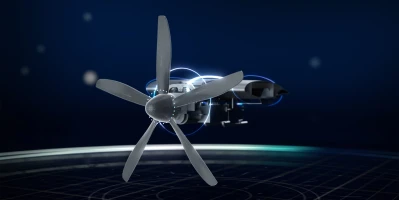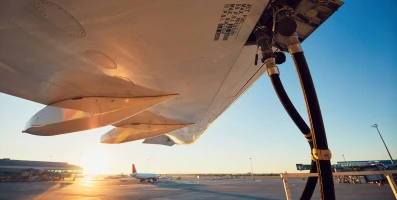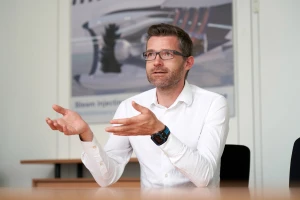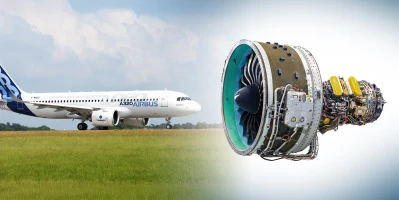good-to-know
SAF on the test stand
MTU is the first MRO provider to have performed acceptance testing using sustainable aviation fuels (SAFs) on the test stand. The test runs were carried out with V2500 engines.
author: Isabel Henrich | 2 mins reading time published on: 07.06.2022
author:
Isabel Henrich
studied political science and communications. At MTU, she coordinates the editorial process of AEROREPORT and is responsible for the conception and development of its content.
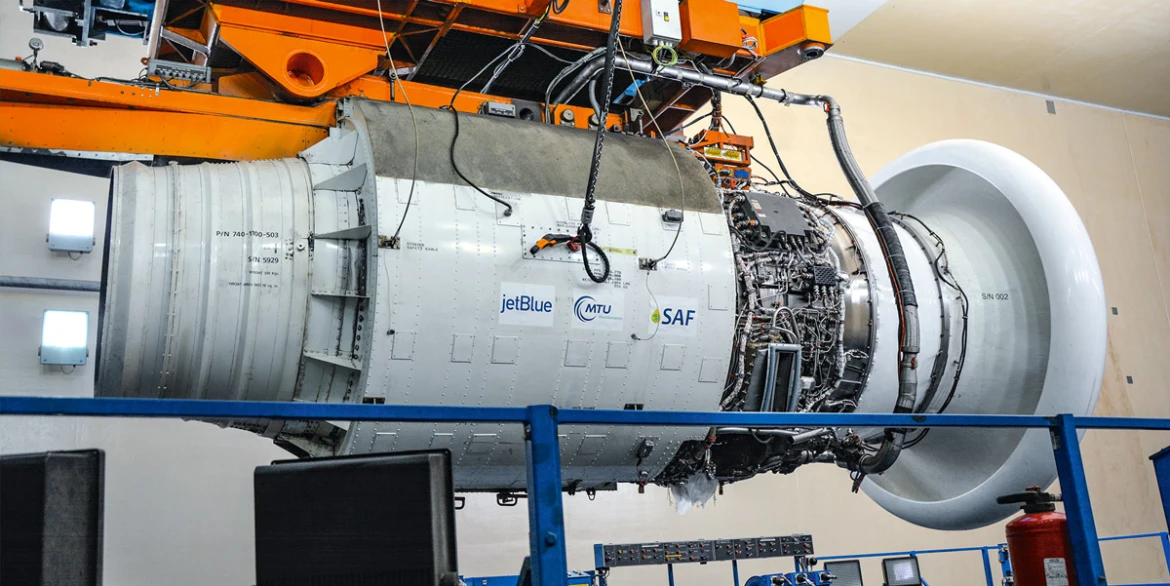
At the end of 2021, MTU Maintenance and launch customer JetBlue Airways performed acceptance runs on V2500 engines using sustainable aviation fuel (SAF) for the first time. In March 2022, another customer, LATAM, also had an engine tested on MTU’s test stand using SAF. Initially, the partners used a fuel mixture containing up to 10 percent SAF. The fuel used is sustainably sourced from recycled cooking oils and waste, and emits up to 80 percent less greenhouse gas over its entire lifecycle than the conventional kerosene it replaces. This makes MTU Maintenance the world’s first MRO service provider to offer acceptance tests using SAF.
Thorsten Kleine Sextro, V2500 systems engineer at MTU Maintenance Hannover, has spent the past four years working toward using sustainable alternative fuels on MTU test stands.
Mr. Kleine Sextro, what needed to be done before SAF could be used on the test stands?
We conducted negotiations with various fuel suppliers in advance to clarify the technical specifications and the availability of SAF. From a technical point of view, the SAFs used meet all the requirements of the specification for standard kerosene, which means they can be used on our test stands without any problems. We also made the necessary arrangements in-house to get the site SAF-ready so we could use the fuel.
As the first MRO provider to perform this kind of acceptance testing, MTU is also setting new standards.
Absolutely. Our customers are keen to do what they can to reduce their climate impact. We‘re very pleased to be able to support them in this by using SAF during the acceptance runs. We saved around 0.6 metric tons of CO2 as a result, significantly reducing the carbon footprint. So far, we’ve been using a 10 percent SAF admixture for the testing. In the future, we can bring this up to 50 percent—the maximum currently permitted.



